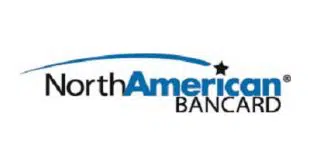

PCI Plus: The answer to the PCI compliance crisis and U.S. security threats
Read news feeds on any social media platform, or watch your nightly news, and you’re likely to hear about cybercriminals hacking someone’s data. Facebook and Capital One are just a few of the notable security breaches this past year, so it might be fair to say 2019 was a year of PCI pandemonium and we are knee deep in a compliance crisis.
The fact the Department of Homeland Security recently issued a warning to businesses to be on alert for potential Iranian cyberattacks doesn’t help. One expert was quoted in a recent article saying, “We also anticipate disruptive and destructive cyberattacks against the private sphere.” This threat confirms businesses of all sizes are possible targets and measures should be taken to secure data.
One answer is strengthening the PCI compliance
fabric in our country.
The challenge SMBs face.
While major organizations like Facebook and Capital One have robust security resources available at their fingertips, there are businesses that would be crippled by a cyberattack from criminals – particularly small to medium-sized businesses (SMBs). Merchants that fall into this category are smaller operations who might not be able to financially fend off the devastating blow of a data breach.
After everything is said and done, the average
cost for a breach in the United States is more than $8 million, according to a
recent study from IBM and Ponemon Institute. The same
study noted that there is a 29.6 percent chance for a typical company to
experience a data breach in the next 24 months.
Cybercriminals know large organizations have a lot to lose, but they also know businesses in the Americas region (continents of North and South America, along with associated islands) are ripe for pillaging with only 20.4 percent of all businesses being PCI compliant. The SMB merchant is a particular target, because merchants of this size often lack resources to follow the complex standards.
How to simplify PCI compliance.
PCI compliance is not just a merchant or consumer problem, it’s a payments industry problem. Between spiraling fees for non-compliance and the inability to properly educate or assist merchants who need the most help, it is clear there is ample opportunity for payment companies to create a simplified program that helps merchants achieve, and ultimately maintain, PCI compliance. Enter NAB’s PCI Plus.
PCI Plus and its advantages:
- No SAQs, scans, or unnecessary forms – Qualified merchants, and merchants using NAB’s proprietary POS solution, Payanywhere, can avoid complicated mandates and annual check-ins.
- Complimentary vulnerability scans – Where do you have the most exposure? Qualifying merchants could have up to three IP addresses scanned at no charge.
- Breach forgiveness and zero non-compliance fees – Qualified merchants are covered up to $100,000 for breach-related costs and some merchants are exempt from paying non-compliance fees altogether.
- Dedicated support and custom packaging – Customized pricing features and dedicated professionals to support merchant needs.
NAB believes merchants face many obstacles when it comes to achieving and maintaining PCI compliance. PCI Plus gives business owners actionable steps to not only protect their business from cybercrime, but also contribute to resolving the country’s larger compliance problem.
Get PCI compliant today!
If you’re ready to start protecting your business and the private data of your customers, PCI Plus is a simplistic, cost-effective alternative to PCI compliance.
Consumers deserve protection and you deserve a world-class PCI program that protects your business. Ready to learn more? Visit https://www.northamericanbancard.com/pciplus to check out the PCI Plus program, and take advantage of all NAB can offer you.




